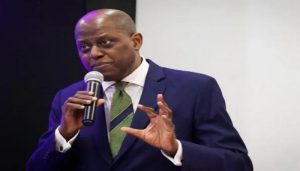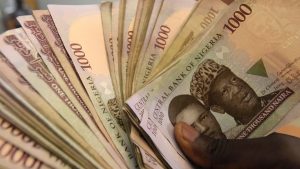
By David Akin mola
The totality of the budget deficit under the President, Major General Muhammadu Buhari (retd.), is set to hit N47.43tn, according to an analysis of the Federal Government’s data from the Budget Office of the Federation.
According to Investopedia, a budget deficit happens when expenses exceed revenue.
The budget data cover the actual budget deficits and projections for the 2015, 2016, 2017, 2018, 2019, 2020, 2021, 2022, and 2023 fiscal years.
According to data, deficit financing has risen by 370.54 per cent from N2.41tn in 2016 to N11.34tn in 2023.
In Q3 and Q4 of 2015, total deficit financing amounted to N841.48bn, it rose to N2.41tn in 2016, N3.81tn in 2017, N3.65tn in 2018, N4.18tn in 2019, N6.59tn in 2020, N6.44tn in 2021.
While the total deficit for 2022 has not been released, the budget office expects the deficit to hit N8.17tn (of which N6.37tn had been spent as of November 30, 2022).
The office also anticipates a high deficit financing of N8.17tn for the 2023 fiscal year.
Between Q3, Q4 of 2015, 2016, 2017, 2018, 2019, 2020, the first three quarters of 2021, and the first four months of 2022, the Federal Government spent N23.66tn on personnel costs, pensions, overhead costs, presidential amnesty programme, other service-wide votes, and special interventions.
It also spent N14.13tn on servicing domestic and foreign debts, as well as N10.47tn on capital expenditure.
Explaining the government budget deficit, an economic expert, Professor Akpan Ekpo, said, “This shows that expenditure has eclipsed the revenue, because they have to borrow, which is why there is a deficit.
“They can’t raise enough domestic resources to finance spending. That gap is a deficit. Talking about GDP, by the rules, it should not be more than a certain percentage of GDP, but it has exceeded that.”
According to the former Coordinating Minister for the Economy and Minister of Finance, Dr. Ngozi Okonjo-Iweala, there is a need to keep the budget deficit under three per cent of GDP because of the Fiscal Responsibility Act, 2007, and by the international norm.
The country’s budget deficit to the GDP ratio had risen from 1.69 per cent in 2015 to 2.37 per cent in 2016. It increased to 2.85 per cent in 2018, and 2.92 per cent of GDP in 2019. The Federal Government expects the deficit to GDP ratio to be 5.03 per cent of the 2023 budget.
The Minister of Finance, Budget and National Planning, Mrs. Zainab Ahmed, had disclosed that the government was struggling to raise revenue for its expenditure.
In a document titled ‘Public Consultation on the Draft 2023 – 2025 MTFF/FSP,’ she said, “Revenue generation remains the major fiscal constraint of the federation.
The systemic resource mobilization problem has been compounded by recent economic recessions.”
While defending the 2022 budget, she stated, “If we just depend on the revenues that we get, even though our revenues have increased, the operational expenditure of the government, including salaries and other overheads, is barely covered or swallowed up by the revenue.
“So, we need to borrow to be able to build these projects that will ensure that we’re able to develop on a sustainable basis. Nigeria’s borrowing has been of great concern and has elicited a lot of discussions. But if you look at the total size of the borrowing, it is still within healthy and sustainable limits.”
Recently the Federal Government borrowed N6.31tn from the CBN through Ways and Means Advances in 10 months of 2022. This pushed total borrowing from the CBN from N17.46tn in December 2021 to N23.77tn in October 2022.
World Bank had raised concerns over the financing of budget deficit through the CBN’s Ways and Means.
In its December 2022 update, the global bank said “Moreover, financing of the fiscal deficit through Ways and Means continues to fuel inflation by increasing liquidity in the money market.
“The CBN’s inflation target of six–nine percent, which has not been achieved since 2016, remains unlikely to be met in the near term.”
With deficit financing estimated at 5.2 percent of GDP for 2022, the bank disclosed that the Federal Government remains in breach of the legally stipulated level set in the Fiscal Responsibility Act (2007).
It further said that Nigeria’s GDP growth rate would continue to be outpaced by other emerging economies, with inflation growing, and fiscal deficits increasing.
The report stated that the government could sell or concession the Tafawa Balewa Square in Lagos as well as all the National Integrated Power Projects in Olorunsogo, Calabar II, Benin (located at Ihorbor), Omotosho II, and Geregu II plants, and some other government assets to fund its budgets.
Meanwhile, Buhari may pass on $16.62bn Eurobond loan repayments to the next government, according to government data.
These repayments will be made almost every year until about 2038, according to the public presentation of the approved 2023 budget by the Minister of Finance, Budget, and National Planning.






